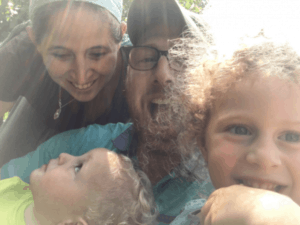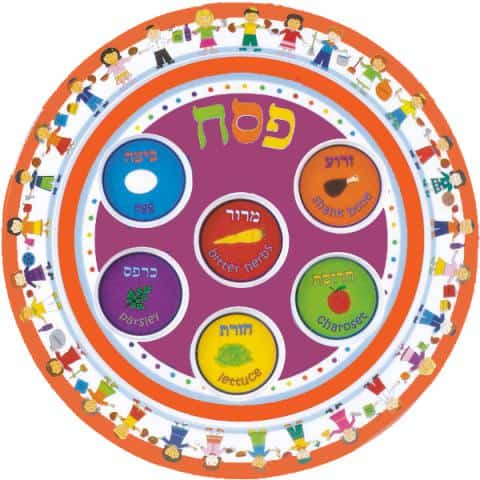by Rabbi Will Keller
In the seder text we are commanded that in every generation, everyone, should see themselves as if they personally left Egypt. This concept comes from the Torah which says in Exodus Chapter 13 Verse 8, “For the sake of this, did the Lord do this for me in my going out of Egypt.” Instead of saying ‘for what the Lord did for our people’ or ‘for our ancestors’ we are included in the group that themselves left Egypt. How do we fulfil this mitzvah over passover? Can you really feel like you left Egypt? We attempt to interpret this mitzvah within the context of our Seder, but there are two different ways we can approach it.
The Ritba, Rabbi Yom Tov Ishbili (a Spanish Sephardi Rabbi from the 14th century) explains we must see ourselves as slaves, taking on the narrative that we were personally redeemed from slavery to freedom, with all the baggage and trauma that come along with that mindset. I struggle with the Ritba’s literal read that there should be some experience of pain and slavery at my seder. But most Seders I have been to blend together many positive experiences – memories of Hillel sandwiches, insights from the haggadah and tasty family recipes. These memories create the archetype of my Passover experience. Of course there have been exceptional seders – like the all night Seder I participated in Israel where we finished the fourth cup with the sunrise or the year Bubbie changed her gefilte fish recipe to the shock and dismay of all present. But generally this amalgamation of my Passover memories over the years merge together, creating a warm, positive experience that highlights the privilege I have to be a Jew proudly celebrating with family, in my home with delicious food and good conversation.
Our passover gatherings are joyous and filled with discussion; a polar opposite from what I imagine the experience of slavery might be. In fact, if my Passover experience should be viewed through this lens of re-creating slavery, I am pretty sure I am doing Passover wrong. How can we experience slavery at our beautiful tables? Is it possible to experience something so antithetical to our experience?
The Maaseh Nissim, Rabbi Yaakov Lorberbaum (a 18th century Ashkenzi Rabbi) offers a different approach that I appreciate. Rabbi Lorberbaum explains we should not interpret the commandment to feel as though we left Egypt literally, but rather we should remember our people left Egypt and their freedom allows us to participate in the covenant. While we did not each individually leave Egypt, our ancestors did and it is due to their redemption that we have the privilege of our Jewish experience. We are not obligated to see ourselves as slaves if we are able to see ourselves in those who were enslaved and learn lessons from their experience. To accomplish this I can imagine finding a place to honor our ancestors stories, both through the traditional text of learning about our ancestors going down to Egypt but also discussing how our relatives came to America, through hardship, persecution and dreams of creating a safe place for us to live today.
Our Passover Seders do have elements that attempt to help us imagine slavery (no, this is a not a joke about being forced to come to Seder or how long they stretch out). We dip our vegetable, Karpas, in salt water to represent our tears and Haroset to represent the bricks slaves used to build and some families even use leeks to beat each other or the table to remember the cruel taskmasters. However, these are symbols that allow for deeper engagement, not an actual encounter with bitter servitude. If I were inviting others to a Ritba-themed Passover, I might have a Seder on the go with peasant food or no food at all in the first course and delicacies at the end. I would use a set of guided questions to explore the experience of those enslaved all over the world, which might be the most relatable way to imagine ourselves as those enslaved in Egypt. Organizations like AJWS put out materials with pictures and facts to help us understand how real slavery is in so many parts of the world.
Personally, I identify with the Maaseh Nissim’s approach and strive to use Passover as a reminder of my position and privilege, both in the continuum of Jewish existence, but also in terms of my freedom in today’s society. Those who identify with the passage as the Ritba did, hope to see the Passover story through the eyes of a slave as a way of internalizing the meaning of the holiday.
Working at the Jack M Barrack Hebrew Academy gives me the incredible gift of interacting with all types of families, each with their own distinct Passover flavors and traditions intended to teach and include others in our tradition of redemption. Whether you follow the Ritba or the Maased Nissim, whether you see yourself in the experience of slavery or are looking to build off the experience of those who actually lived through slavery, may we all have a meaningful and wonderful Passover and merit to live in a free world.
Happy Passover!
Rav Will
Rabbi Will Keller is the Director of Jewish Life at Jack M. Barrack Hebrew Academy.

Rabbi Will and his family.




